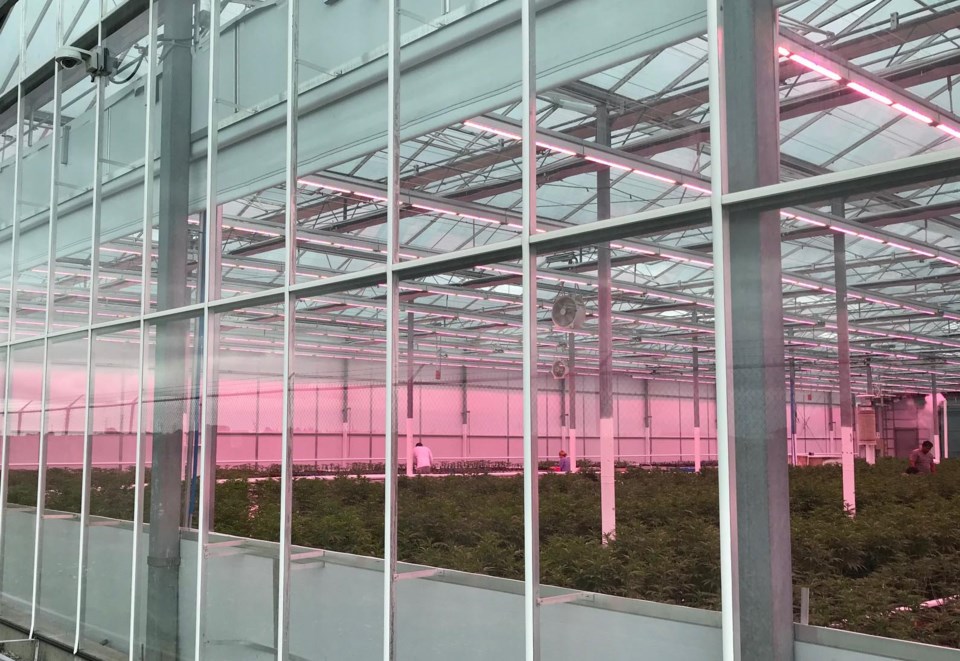A cannabis greenhouse operation in East Ladner this week announced it has reached another deal.
Located on 104th Street, Rubicon Organics said it has entered into an agreement with The Valens Company to provide organic certified extraction services.
"This agreement will enable Rubicon Organics to accelerate the launch of our organic certified 2.0 innovation pipeline, providing our consumers with the best cannabis products in Canada, and growing our share of the premium and super premium cannabis category,” said CEO Jesse McConnell in a news release.
Although smaller in scale compared to other cannabis greenhouse grow operations in the City of Delta, Rubicon is trying to position itself as a bigger organic craft cannabis grower focused on the higher end of the market, already having supply agreements in six Canadian provinces.
The 125,000-square-foot former Delta vegetable greenhouse is cultivating about 11,000 kilograms per year.
In addition, the certified cannabis organic grower received approval from Health Canada last year to expand its grow area to include an 11-acre outdoor grow site on its 20-acre property, becoming the first legal outdoor marijuana grow operation in Delta.
New Stats Canada findings on cannabis use
Meanwhile, new evidence suggests the COVID-19 pandemic may have had influence on the alcohol and drug consumption habits of Canadians.
That’s according to Health Canada, which this week released the results from a survey conducted in January which found that the habits of the majority of Canadians who had previously consumed alcohol or cannabis (54 per cent in both cases) did not change compared with the pre-pandemic period.
Of those who had previously consumed alcohol, nearly one-quarter (24 per cent) said their consumption had increased during the pandemic, while almost as many (22 per cent) said their consumption had actually decreased.
The results of the survey also showed that Canadians who have experienced stress and social isolation since the onset of the pandemic were more likely to have increased their alcohol consumption.
Of those who had previously consumed cannabis, more than one-third (34 per cent) said their consumption had increased during the pandemic.
Respondents indicated that stress, boredom and loneliness contributed to that increase.
Although the majority (54 per cent) of people who had previously consumed cannabis did not increase their consumption during the pandemic, many of them continued to consume cannabis most days of the week, the study found.
Among those whose consumption had not changed, 25 per cent had consumed cannabis five or more days per week in the previous 30 days, compared with 35 per cent of those whose consumption had increased.
The study also noted young people, who are generally most likely to consume cannabis, were more likely to have increased their consumption since the start of the pandemic, while factors related to ease of access also seemed to have contributed to an increase in consumption by some respondents.
Recent data on cannabis sales have shown that sales at cannabis stores more than doubled from 2019 to 2020.



